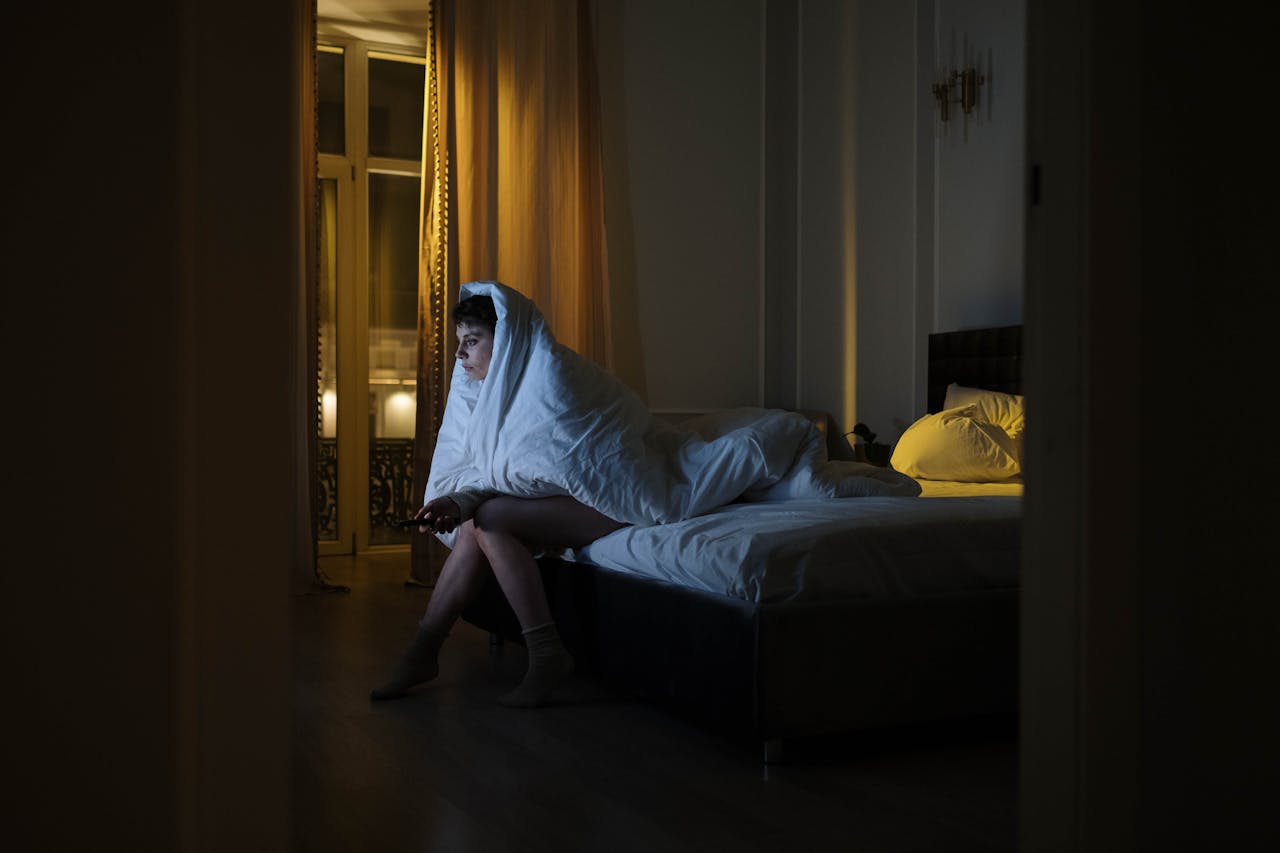You’re tossing and turning when you should be sleeping. Again. What’s keeping you up this time? Insomnia is frustrating, but understanding what’s causing those sleepless nights can help you start getting the rest you need. Let’s look at the five most common causes of insomnia so you’ll be on your way to identifying changes that could pave the path back to enjoying your sleep.
1. Stress and Anxiety
 Worries about work deadlines, finances, family issues, and more keep you tossing and turning. This constant state of anxiety and stress is a common insomnia trigger. Stressful life events like a job loss, divorce, or a loved one’s illness can exacerbate existing anxiety. But even daily stresses and concerns can spark anxious thoughts that disrupt sleep. When your mind is consumed by worries, relaxing into restorative sleep is tough. Anxiety disorders like generalized anxiety disorder and social anxiety can be especially problematic for insomnia. The inner chatter and racing thoughts make it nearly impossible to sleep.
Worries about work deadlines, finances, family issues, and more keep you tossing and turning. This constant state of anxiety and stress is a common insomnia trigger. Stressful life events like a job loss, divorce, or a loved one’s illness can exacerbate existing anxiety. But even daily stresses and concerns can spark anxious thoughts that disrupt sleep. When your mind is consumed by worries, relaxing into restorative sleep is tough. Anxiety disorders like generalized anxiety disorder and social anxiety can be especially problematic for insomnia. The inner chatter and racing thoughts make it nearly impossible to sleep.
2. Poor Sleep Habits
Staring at screens, eating heavy foods, or doing stimulating activities too close to bedtime can rev up your mind and body, making it much harder to wind down for sleep. Going to bed and waking up at different times can also disrupt your sleep-wake cycle. Your body’s internal clock gets confused, making it hard to feel sleepy at the “right” times. Your bedroom setup matters, too. Noise, light, extreme temperatures — any of these can prevent quality sleep. An uncomfortable mattress or pillows that don’t support your sleep position can also lead to restless nights and insomnia.
3. Medical Conditions
Dealing with ongoing pain, whether from arthritis, injuries, or other conditions, can seriously disrupt your sleep. The constant aching and throbbing makes it challenging to get comfortable and relax into restorative slumber. Even if the pain isn’t severe, it can still keep you tossing and turning.
If you experience an irresistible urge to move your legs, especially at night, you could have RLS (restless legs syndrome). The tingly, creepy-crawly sensations in your limbs make it very difficult to sleep through the night undisturbed. Various other medical issues like acid reflux, asthma, hyperthyroidism, and Parkinson’s disease can also interfere with sleep.
4. Substance Use
Alcohol undermines high-quality sleep. While it may induce drowsiness initially, alcohol disrupts your sleep cycles later in the night. You’re more likely to wake frequently and have fragmented, non-restorative sleep after the alcohol wears off. That afternoon coffee pick-me-up can also stick around longer than you think. Caffeine is a stimulant that blocks sleep-inducing chemicals in the brain and increases adrenaline production. Its effects can last as long as 8 hours for some people. So, having caffeine even in the late afternoon could lead to difficulty falling asleep at night.
Smokers tend to sleep very lightly and often wake up in the early morning due to nicotine withdrawal. Nicotine is both a stimulant that amps you up and also acts as a depressant that disturbs sleep quality. It’s a triple whammy — nicotine increases stress and anxiety, makes it harder to wind down, triggers insomnia symptoms like difficulty falling asleep, and causes lighter, fragmented sleep.
5. Work or Travel Schedules
Frequent jet lag or shift work can affect your body’s circadian rhythms. Your internal clock gets thrown off, making it difficult to stay awake when needed or fall asleep at night. Suddenly switching from day to night shifts is a surefire way to develop insomnia. Business travel across multiple time zones confuses your brain about the time. Your body’s sleep-wake cycle can’t adjust quickly enough, leaving you awake at 3 AM or dozing off at your desk. Occasionally, pulling an all-nighter to cram for exams or meet a deadline is manageable. But consistently getting too little sleep on weeknights and oversleeping on weekends — a pattern called “social jet lag” — will disrupt your circadian rhythms over time.
While some causes, like medications or medical conditions, might require a doctor’s help, other conditions can be overcome with the help of anxiety therapy. Book a consultation today.